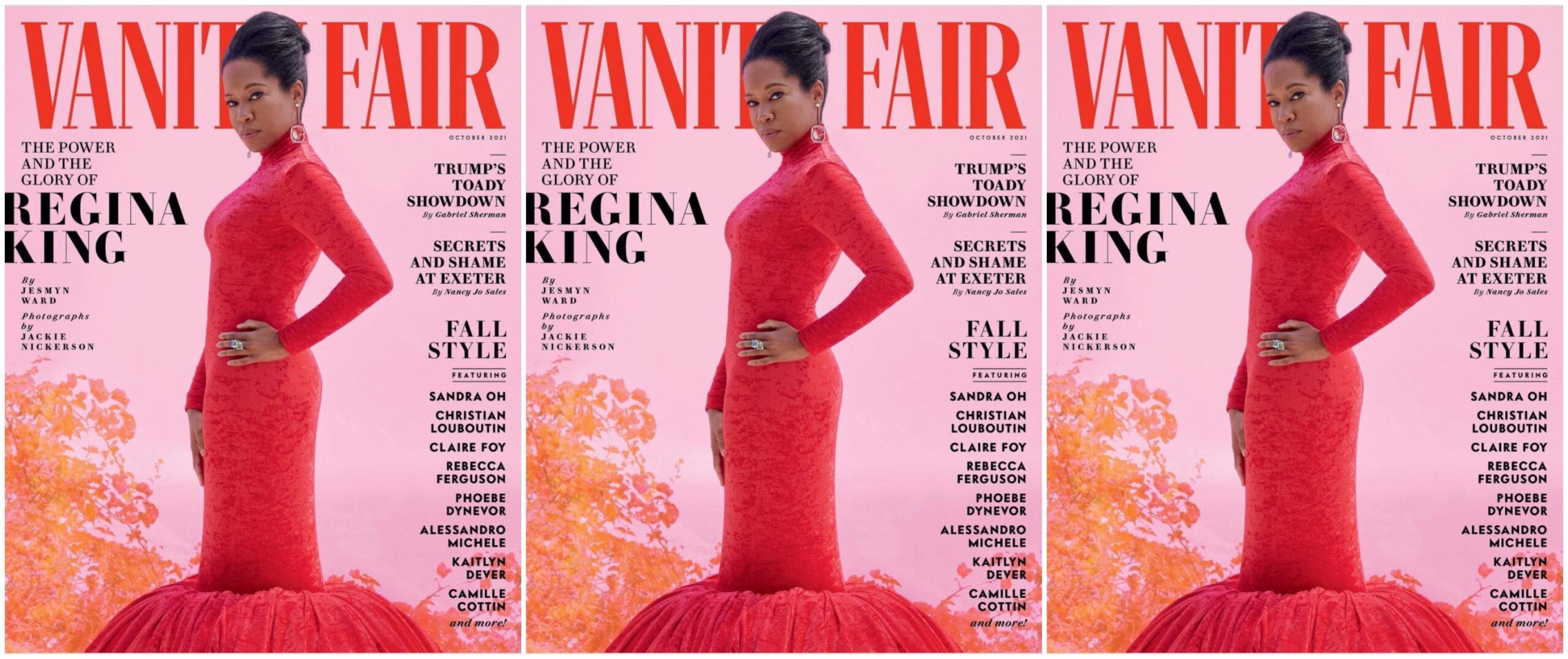“Perfection,” reads a comment from Viola Davis in response to Vanity Fair’s Instagram announcement of its Balenciaga-clad cover star, Regina King. We’re inclined to agree; the girl from 227 has come a long way since her smile lit up our television screens each week as Brenda Jenkins, a character vividly recalled by acclaimed author Jesmyn Ward in VF’s October cover story.
“[T]hrough King, Brenda was the real deal,” writes Ward. “She was frank and inappropriate and funny and oblivious and messy and naive. She was genuine. There was much about her that I wanted for myself, most notably the ability to speak plainly from her perspective to adults, which was something I never saw in my world.”
Suggested Reading
Just over three decades after 227 ended, King is still speaking plainly, not only as an award-winning actress but as a respected producer and director, garnering the respect of Hollywood heavyweights like Barry Jenkins, Renee Zellweger and Sandra Bullock, all of whom contribute adulatory comments for VF’s profile.
“Everyone in my tribe doesn’t have the same skin color, but everyone in my tribe definitely has the same sensibility,” says King. “So I’ve fostered really amazing relationships that run the gamut, that are not just all Black people, that are not just all women. It’s the totality of it all that has me where I sit right now.”
“With Regina, there’s just a weight of knowledge she brings…when Regina is in the room, you let Regina have the room. Everyone’s gonna benefit from it, even me,” Bullock explains, later adding: “I think a lot of that comes from being a female. We’ve always had to be scrappy and put your head down and do the work and be grateful for what you have. As a Black woman, she’s had to do that a thousand times more.”
Still, as King shares, she has been incredibly strategic in her trajectory from sitcom supporting role to in-demand leading lady, as Ward recounts:
“Somewhere around in between Boyz n the Hood and Poetic Justice, having gone on a few auditions, a light bulb came on in my head and I was like, You know what? If it doesn’t speak to me on the page, if I’m not feeling that connection to it, I’m not going to audition,” she says. “It’s not fair to myself. It’s wasting the casting agent’s time, the producer’s time—and wasting my time, to be quite frank.” King wants her projects to have heart, and later I think that her early TV work probably taught her to value those moments of connection. Her favorite scene from 227, she recalls, “was an episode where Brenda has a moment with her dad. She is crying and he is very tender with her, and wipes the streaked makeup she isn’t supposed to have on from her face. I don’t really remember what it was about, but I know it was a moment that we rarely saw on TV.”
Also rarely seen have been the stories of America’s Black cowboys—make that cowpersons—who were among the earliest to roam the country’s then-wild West. King next stars alongside an all-star cast—including Idris Elba, Jonathan Majors, Zazie Beetz and LaKeith Stanfield—in Jeymes Samuel’s highly anticipated western The Harder They Fall. Though she admits she’d previously considered Westerns “a definite nap,” King says reading the script was “like what I felt when I saw Pulp Fiction—like, I’ve never seen anything like this before. In this day and age, it’s really hard to come up with something that you’ve never seen before.”
Upon also meeting Samuel, she decided: “I’m going to take a ride with this cat. Either it’s going to be awesome or it’s going to be terrible. But I’m willing to take the ride. I’m going to go through the fire with him.”
“The way he was able to illustrate the landscape of the Western that he was going to do, and so clearly, I was able to visualize seeing all of these different shades of Black people just in a way that I had never seen before,” she adds.
Fans of Watchmen have already seen King get her action star on; for The Harder They Fall, she both rides horses and “learned gun skills on roller skates” for her role as the fictional “Treacherous Trudy.” The character is one of several Black outlaws both real and imagined “who exercise agency in every frame. They shoot, ride, quip, joke, and punch their way through a landscape that was fueled by an American dream that depended on their erasure and silence,” writes Ward.
“This isn’t Gunsmoke,” says King. “But as Jeymes would say: ‘But the film is bringing all the smoke.’”
For King, it’s yet another opportunity to flex not only her immeasurable talents, but Black representation onscreen.
“We’re not a monolith. We are quirky people. We can be the athlete and the nerd; we can be the athlete or the nerd…I just have a desire to tell stories that speak to me, you know,” she tells Ward, later adding: “That’s where we are as a nation. We are now interested in revising the revision…We are thirsting for the true story.”
Straight From 
Sign up for our free daily newsletter.


